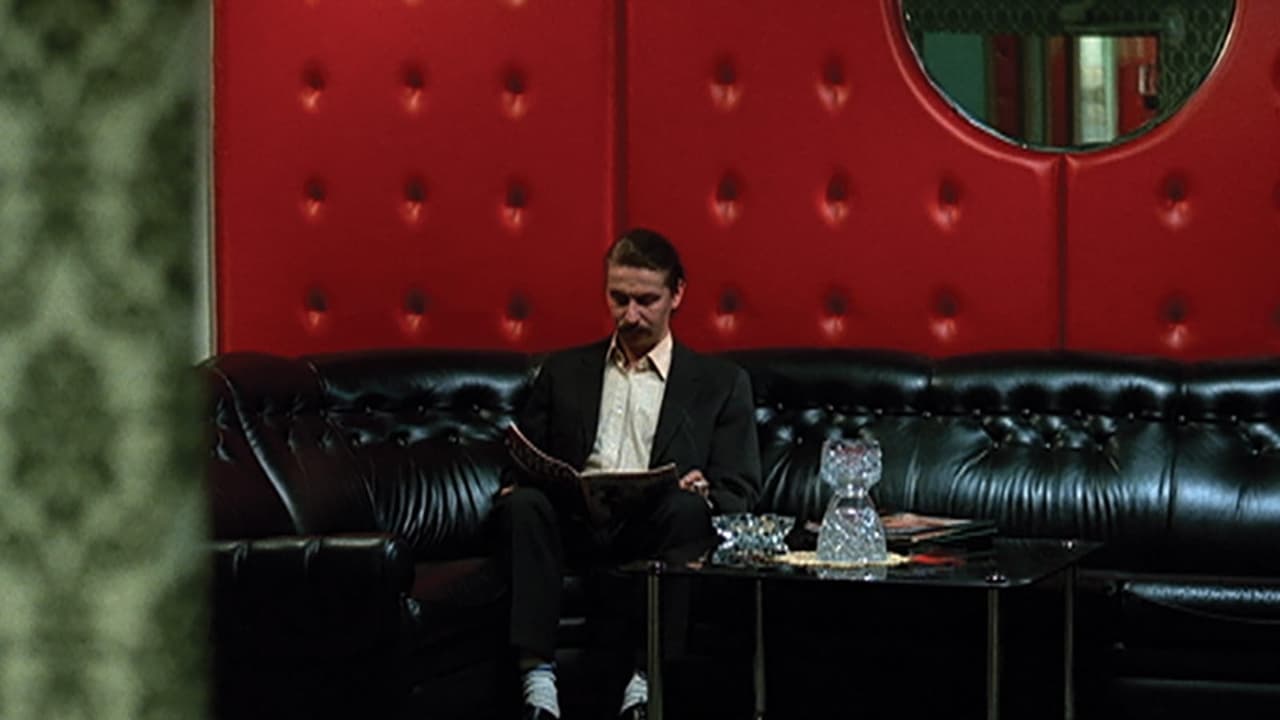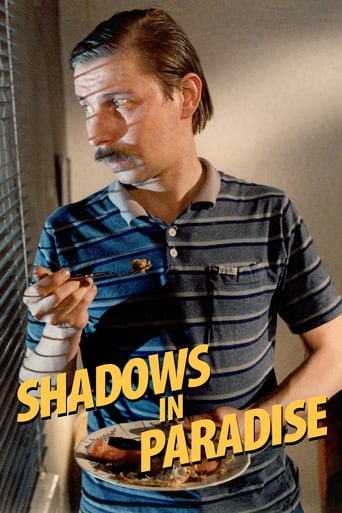

One of reviewers has called this movie "a beautiful example of minimalism". By this I believe is meant minimalism of acting, as the two leads, Matti Pellonpää and Kati Outinen, spend the first forty minutes of this movie without any expression, until one breaks out in a sardonic smile. This does not look like minimalism to me, but depression. As I have remarked in other reviews, a low affect is typical of depression and accurate in its portrayal. It is not, however, interesting.It's a movie about two lower-class loners. He's a garbageman. She's been fired from three jobs in the last few months, for what she says is no reason. On their first date, he takes her to what appears to be a bingo game in a DMV office. She asks him what he wants. He says "nothing". I believe him. Eventually she stops showing up.She regrets it. So does he. He shows up to invite her to see his sister in a mental hospital.In the theater, in the dark, surrounded by other people who are paying attention, the bleached colors and the effort made to read emotion into the blank eyes of the players is an engrossing operation. It's clear that these two want the simplest and most human of things, a little sex and not to be alone. However, they demand too much from each other, to make the offer without indicating they want it. How can they expect anything? And, given the director's indifference to the audience, his "minimalism", how can he expect an audience to put in the work without more of an indication that there is an expectation of some reward?
... View MoreMy first taste of Finnish director Aki Kaurismäki, I watched Shadows In Paradise shortly after finding out about it because it's so short and seemed to be sweet. Based on reputation and plot lines, Kaurismäki looked to be the Finnish Mike Leigh in his representation of working life, or perhaps anti-Mike Leigh with his minimalist dialogue. The film is good, but too slight to have a big impact. It's a very simple love story, similar to films like Badlands where a couple do wrong to be with each other, but not a lot of exciting events happen. It's well shot and the cinematography is great even if the editing isn't always the best. But it holds back on its characters far too much for me to be invested. Interesting breezy watch though.7/10
... View MoreThis movie was simply awful. The fact that it's a low budget film, and that it apparently uses non professional actors is no excuse. The lead man, who is a garbage man, is all over the place, and can never make up his mind about anything. His expression also never changes. The woman is pretty much the same: dull as all hell.These people not only have nothing in common with one another, but probably don't have anything in common with any other human being on the planet. To be honest, I don't think this movie deserves any stars at all (I wanted to leave it a 0 out of 10 rating, but the least I can give is 1, so there you have it).No movie that was less than 75 minutes has ever felt so long to me. I'd rather watch any four-hour long epic than this piece of crap again. This is simply unwatchable.
... View MoreSome random observations: 1. Kaurismaki's "paradise" is grimy city streets, garbage, landfills, jails, flophouses, shabby apartments. Two kinds of people inhabit this Eden: either the few, the snooty, the well off – or the subverbal, poorly educated quasi-lumpen stumbling about among the aforementioned sites. The settings, both exterior and interior, belong more to the England of "The L Shaped Room" or "Billy Liar" than to the Scandinavia of travel agency brochures.2. Kaurismaki delivers virtuoso satire founded upon the stereotypical shy, wordless Finn. But he offers more by pushing beyond stereotype to display a deep familiarity with the kind of people he shows on the screen. An American director similarly so in tune with his people might be Kevin Smith. A possible British counterpart? Maybe Ken Loach.3. "Shadows in Paradise" is also a testament to Kaurismaki's confidence in the cinematic medium itself, in its power to tell stories using sight and sound without principal reliance on the material of theater or literature – words. We are accustomed to the many films about how XX meets XY, where the characters express feelings, establish plot, indeed, do just about everything through words. Sometimes we even get entire orations, regardless of a film's "realistic" intent. Dialogue rules everything from the quippy screenplays of Nora Ephron or Preston Sturges to the tangly Gallic word-webs of Eric Rohmer. The similarities between Ernest Borgnine and Betsy Blair in "Marty" and Matti Pellonpaa and Kati Outinen in "Shadows in Paradise" end with "Marty's" theatrical, dialogue-soaked provenance. It would be hard to transfer this film of Kaurismaki to page or stage. The story would weaken and likely die in print or any exclusively verbal form.4. For his comedy Kaurismaki employs a delay-deadpan technique, something familiar to anyone who has seen the "punishment" sequences in Laurel and Hardy's "Tit for Tat' (1935) or who remembers the standup routines of Jackie Vernon in the 60's. Kaurismaki's comedies – and "Shadows in Paradise" is a good example – prove the technique still achieves the desired result: laughs. And like Jackie Vernon or Laurel and Hardy, Kaurismaki makes his words just another ingredient in the comedy. They are well chosen and sometimes hilarious but enjoy no special preference.5. The movie screened the other night on TCM with the host's caution that this is an unusual sort of romantic comedy – but why the caution? And why the need for any "category" in the first place? To call this a "romantic comedy" and then warn people about its "quirky" or "offbeat"nature does it a double disservice. The warning for possible category transgression either implies that the film is deficient for disregarding certain "rules", or cautions the audience that it will be disappointed, since the movie does things it probably won't accept. But comedy, like so many things in life generally, thrives on surprise. In "Shadows in Paradise", Kaurismaki presents modern, free, prosperous Finland as a bizarre and rather dismal place which he proceeds to mine for laughter and the occasional tear. Whatever a television host labels it, the movie manages to be funny, entertaining – and accessible.6. A Kaurismaki movie has a distinctive "feel", as strongly trademarked as the comedies of Lubitsch or Sennett.
... View More